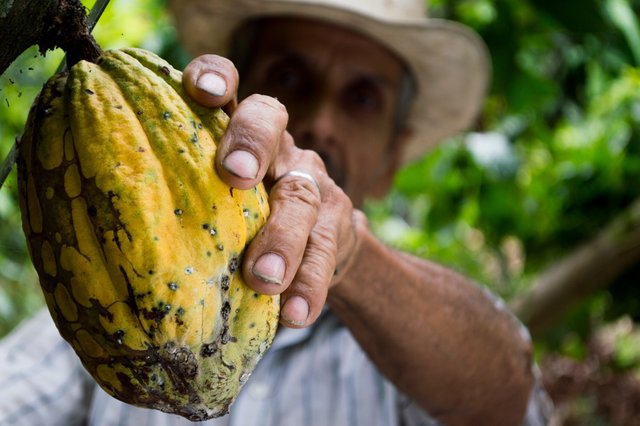Summary
Most blockchain solutions for the supply chain are still in a pilot phase. Some are able to cover very exclusive branches of the supply chain (https://www.provenance.org/), and other solutions focus on developing a platform that can later be used by the industry (https://origintrail.io/). One problem is the extreme hype around “blockchain”, which is a technology that can be an enabler for some use cases, however, to create sustainability and transparency in the supply chain a broader, grass-roots approach is often required.
Agriculture
A good summary of the role of blockchain in agriculture is provided by blockonomi: https://blockonomi.com/blockchain-agriculture/. In their summary they highlight that the industry is still in the early stages:
“Blockchain tech isn’t a magic bullet—no matter how revolutionary it is, it will still leave industries with some issues. Interoperability remains a concern, with so many competing projects coming from multiple angles, and the implementation isn’t going to be a walk in the park.”
Example applications
- Empowering cooperatives: http://agunity.com/
- Platform focused on farming and supply chains in developed countries: https://agrichain.com/
Cocoa

Child labor is widespread in cocoa farming. This is one of the main reasons transparency is urgently needed for cocoa supply chains. Amsterdam based Tony’s Chocolate tries to build a child labor free supply chain in cooperation with Accenture. However, the project is a pilot. It is a very good example, and successfully implemented, but I could not find updates of the project after the pilot. Here is an article where they summarize their work: https://medium.com/@tonyschocolonely/where-blockchain-and-slave-free-chocolate-come-together-d637b14b1ef0
The technology they used is chainpoint. It allows the linkage of any data to the bitcoin network. A simple way to store data on the most prominent distributed ledger, however, if you want to develop any logic in handling the data it must be off-chain, and therefore centralised.
Coffee
https://www.bext360.com/ tries to utilize technology to create higher transparency for coffee supply chains. They cooperate with https://fairchain.org/. However, it is hard to find out details about their approach.
Palm Oil
The palm oil industry is making a relatively great effort to utilise blockchain technology. For example, the Asian market is organising itself to make use of modern technology: https://bitcoinist.com/blockchain-is-building-the-palm-oil-industrys-future/
Hyperledger, a framework for enterprise blockchain solutions backed by large IT companies (e.g. IBM, Microsoft), published an article focusing on Palm Oil, demonstrating the interest of the industry:
https://www.hyperledger.org/blog/2017/11/29/build-it-on-blockchain-a-sustainable-palm-oil-industry
RSPO, a sustainability certification, developed their own tracing system “palmtrace”: https://www.rspo.org/palmtrace. Palm oil seems ripe for a blockchain based business, because the pressure towards sustainability is high, and the end of the supply chains are easier to capture transparently than for example in Coffee or Cocoa.
This is an article summarising the current situation for blockchain in the palm oil supply chain: https://www.chainbusinessinsights.com/insights-blog/why-the-palm-oil-industry-is-ripe-for-blockchain
A short study from a MIT student highlights that one of the biggest challenges is how the data is entered into the system. A transparent, immutable, blockchain based system fails if the data entered is false, or even deliberately manipulated. https://ctl.mit.edu/sites/ctl.mit.edu/files/theses/executive%2Bsummary%2Bhirbli_toufic.pdf
Prominent Supply Chain examples from the Blockchain space
Provenance provides some excellent use cases. It focuses mostly on short supply chains, to provide completely transparent products: https://www.provenance.org/
OriginTrail is developing a platform that aims to achieve widespread industry adoption: https://origintrail.io/
TE-FOOD seems like one of the most successful blockchain implementation in supply chain up to now. Their focus is on shorter supply chains (cattle). https://ico.tefoodint.com/index.html
Agricultural sectors are now the focus of OriginTrail in this SmartAgriHub project, with 108 organizations from 22 different European countries will get to experience. Along side OriginTrail (TRAC) will be none other than Wageningen University & Research.
http://www.hodlerxl.com/origintrail/origintrail-trac-takes-part-in-the-european-agri-food-sector/
Downvoting a post can decrease pending rewards and make it less visible. Common reasons:
Submit
Congratulations @kura0kami! You received a personal award!
You can view your badges on your Steem Board and compare to others on the Steem Ranking
Vote for @Steemitboard as a witness to get one more award and increased upvotes!
Downvoting a post can decrease pending rewards and make it less visible. Common reasons:
Submit